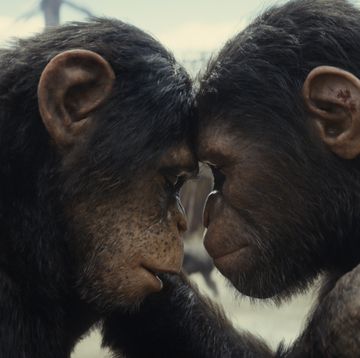“I don’t want it to be a sad film,” says British director Kit Vincent, 28, partway through his new feature-length documentary, Red Herring. And for the most part he succeeds – a pretty astounding feat, given that his subject is the incurable brain tumour he was diagnosed with at 24, which gives him a life expectancy of four to eight more years. Surely, you might think, this is going to be a film that’s justifiably light on laughs. But while, yes, you might find yourself swallowing hard at certain points, Red Herring is a film that finds and celebrates – in a largely un-cheesy way, except for a couple of on-the-nose song lyrics – the humour and delights of the quotidian, and should be applauded for doing so.
There are two – or really, three – reasons for this. As much as Vincent’s terminal diagnosis is his subject, it also sort of isn’t (the reasons for which he will touch on later). Instead, Vincent spends a significant portion of his film – which was shortlisted for the Raindance Maverick Award at this year's BIFAs – not talking about his own feelings, or his physical suffering, but recording the reactions of his parents. In doing so he essentially creates portraits of his mum and dad; he says it’s for them to remember him by, though it clearly also serves the purpose of helping him understand them better while he can.
His eccentric father, Lawrence, a screen natural, has developed a coping mechanism that seems to involve throwing himself into hobbies – wild swimming, birdsong recordings, abstract painting, organised religion – perhaps as a distraction, perhaps grasping for connection and meaning in the world. He’s irascible and loving, and as quick to anger as he is to cry. At times, Lawrence can’t help but take centre-stage – when Kit received his diagnosis, Lawrence immediately had a heart attack – though he’s also self-aware: “It’s hard for you to be emotional when your dad’s being emotional, isn’t it,” says Lawrence. “It’s like I’m not creating any space for you.”
In the other corner is Vincent’s mother, Julie, who separated from Lawrence when Kit, who has two sisters who do not appear in the film, was seven. Julie, a district nurse, has a very real sense of what’s coming, and is responding by emotionally shutting down: a distancing her son finds saddening and frustrating. We watch her tending the chickens she keeps in her garden. “Are they attached to you?” Vincent asks her from behind the camera. “No, they just want food,” she tells him, impassively.
The third of the characters, if we can call them that, is Vincent’s girlfriend, Isobel. A somewhat reluctant interviewee with a trendy bleach-blonde fringe, she provides an invaluable counterpoint to the very premise of the film, positing that – just maybe – conducting important conversations only from behind a camera is adding an unhelpful layer of abstraction and artifice to the events that they will all – but mostly Kit – soon be facing. (She is also given, in a briefly mentioned sub-thread, one of the biggest and heaviest personal decisions of the whole film.)
All of which, I concede, doesn’t sound crazily jolly. But what Vincent has – as well as an sophisticatedly economic style that gives you just what you need to know and no more, and an eye for beautifully composed cinematography that captures the spare beauty of England’s seasidey south coast – is a commitment to filming that might madden his loved ones (and, from family footage, seems to have started early), but leads to him capturing the silly, funny, tender minutiae of everyday life. Lawrence’s inability to use a bread knife. The conservatory full of house plants that Julie so carefully tends. Kit himself, as hip as any 28-year-old creative you might see commuting on the Orange Line, grabbing a few seconds’ release on a skateboard.
Of course there’s pain, and fear, and deep, deep sadness. How could there not be. But not as much of it as you’d expect; maybe because Vincent isn’t facing it properly, or maybe, as he argues, because it’s not the kind of film he set out to make. And, as a portrait of a family, and of human beings being decidedly human, it’s a tender and moving as they come. Then of course, what about that title? Does it signal a misdiagnosis? Some kind of reprieve from the constraints of the human condition? Maybe, maybe not, but Red Herring is a film that seeks to defy the expectations of its heavy topic, however steep the odds.
‘Red Herring’ is in select cinemas and on demand from 3 May

Miranda Collinge is the Deputy Editor of Esquire, overseeing editorial commissioning for the brand. With a background in arts and entertainment journalism, she also writes widely herself, on topics ranging from Instagram fish to psychedelic supper clubs, and has written numerous cover profiles for the magazine including Cillian Murphy, Rami Malek and Tom Hardy.













